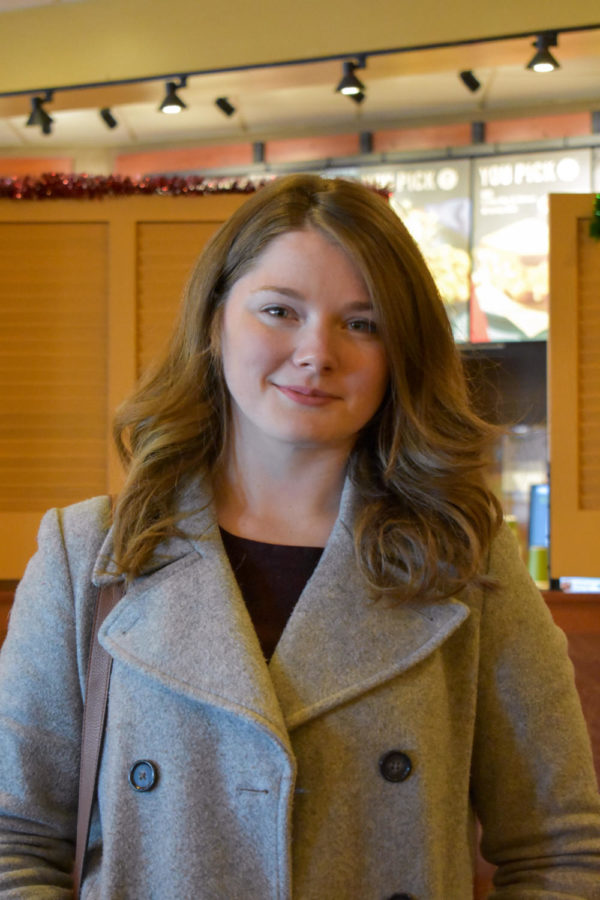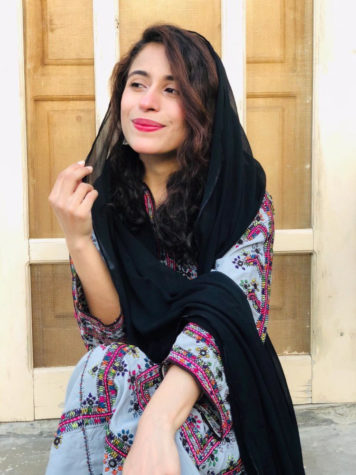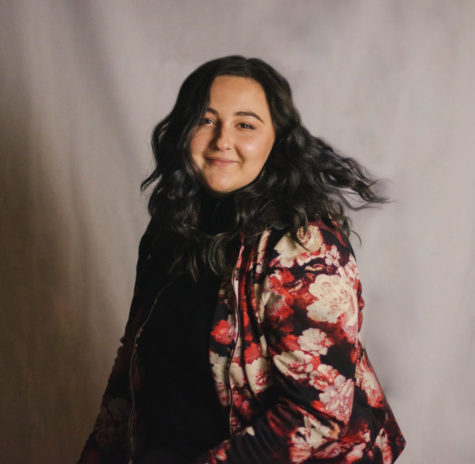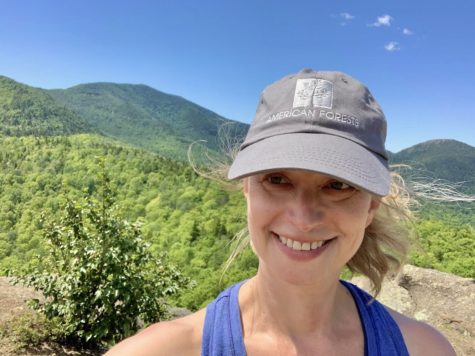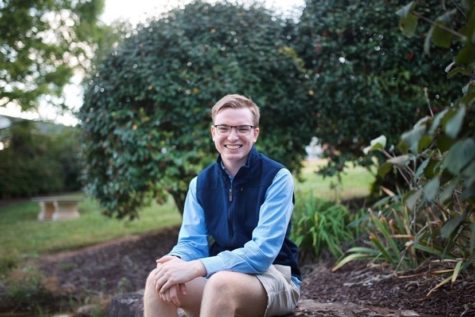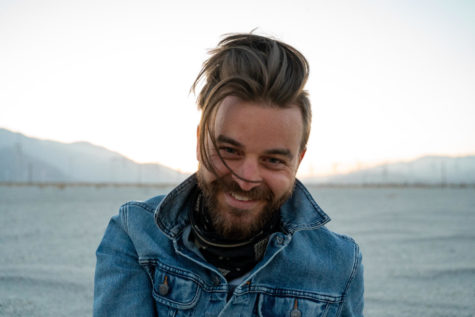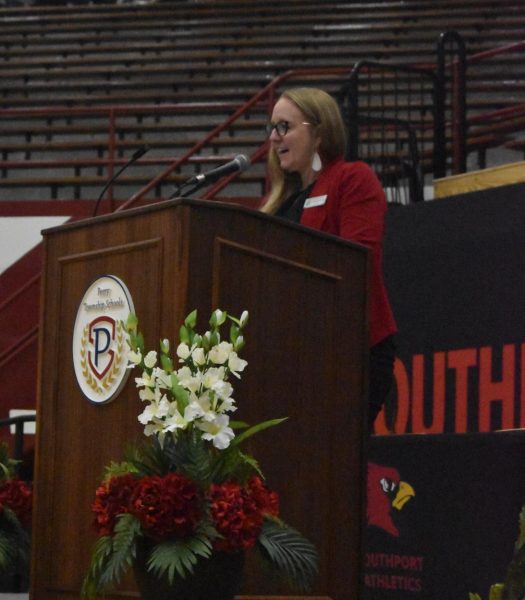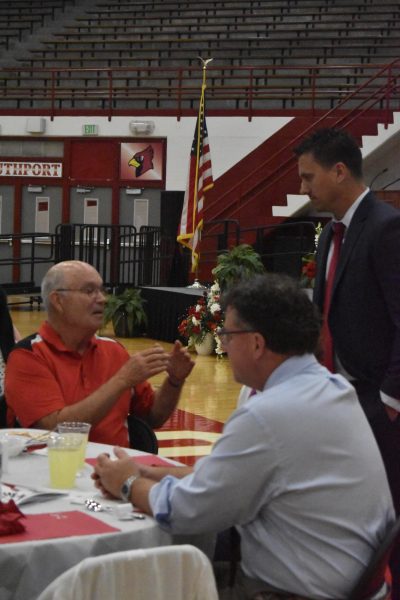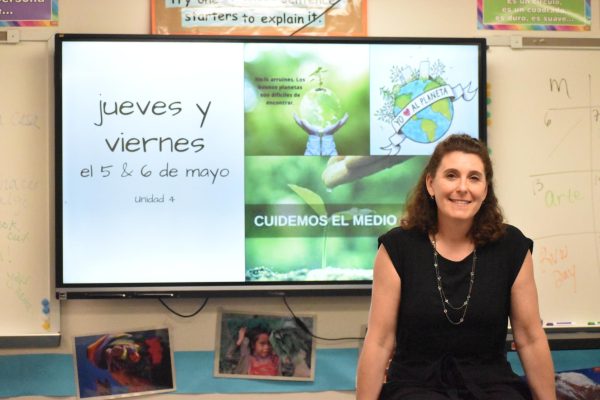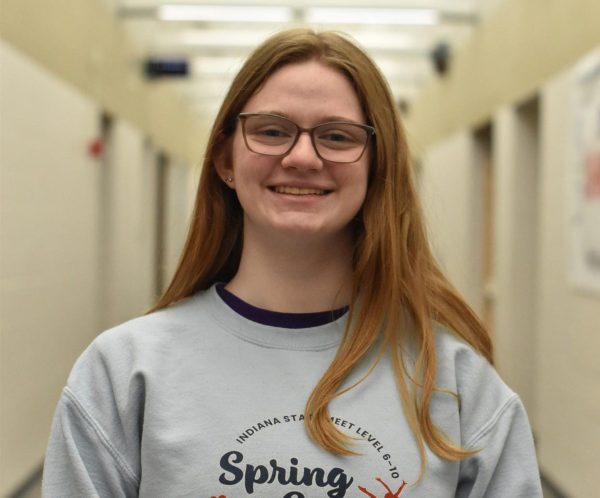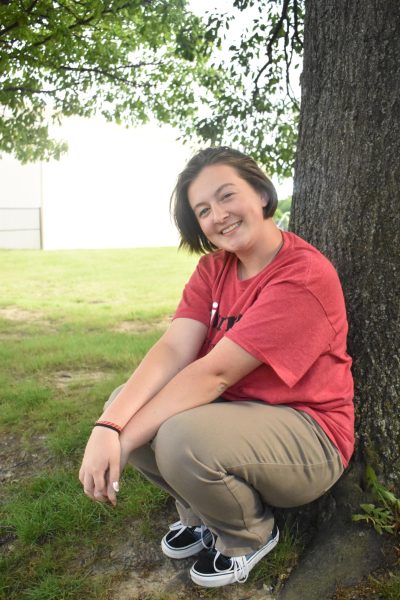Q&A with Kaitlin Gebby
Q: Where did you go to college? What did you major in?
A: I went to IU Kokomo because of their journalism program. I had a really hard time choosing what campus to go to and I chose (Kokomo) because I had family there.
Q: How do you think The Journal is important to SHS?
A: The Journal has such a powerful way of being a voice for students and the explosion story really helped show it.
Q: What was the most memorable thing to happen to you during your time on staff?
A: It was when K took me out to the hallway and practically shook me by the shoulders like “why aren’t you trying? Why don’t you care? I can see that you’re so good, you could be so good if you just cared.” It shook me because… it’s not that I didn’t know anything was wrong or that I didn’t know that I didn’t care, I just thought no one else cared too. And when I saw that someone else could see that I was hurting and… they believed that I could do great things. That was just so much more important to me than anything because it helped me push myself and I did a total 180.
Q: What did you learn from being on The Journal?
A: Well, I definitely learned that I wanted to be a journalist, that was 100% confirmed when I was there. But, you know, I also learned that there’s more to the written word than people give it credit. But I think that a lot of times, writing and writers are underestimated… so I feel like one of the most powerful things I learned on The Journal was just the power of writing.
Q: What was it like covering the Richmond Hill explosion?
I mean, to be honest, it gets your adrenaline going. And it’s something, I mean, beyond just the thrill of being there. It is something that you realize is important, and that a lot of people are polling questions about and so you have the pressure to get something unique, because it’s a story a lot of people are telling and so you can have the pressure and have your coverage be different, to get details that are different and that you know, you want to do everything right. And that can be challenging in a situation as confusing as that was or no one knew what happened. So it was definitely something that shaped me as a writer.
Q: How did your time on staff prepare you for this career?
A: It certainly prepared me, with just learning the fundamentals of journalism. So many people don’t get into it until later in life and you know, starting something in high school puts you lightyears ahead. I think being part of a team and an active contributing member of that team, that it all comes back to your career.
Q: Do you have any advice for people on staff now?
A: Definitely listen to K. He knows what he’s talking about. Absolutely cherish production nights. That is just so special and you’re lucky to be a sophomore on staff because it’s just so special and you want to create that everywhere you go, but you’re just not going to get them anywhere else. As for actual advice, read new stuff. New writing. Read from NPR. Read about things you don’t understand and read about things you don’t care about. As a young writer, reading the products of another writer, someone at a higher level than you are, is going to tell you so much about what your product should look like, so I think that could be incredibly helpful.
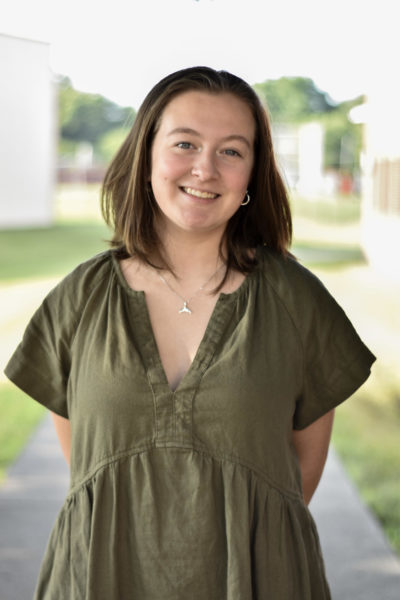
Wow. Hey guys! For the third and final time on staff, my name is Gretchen. It’s almost crazy to think about it being my last year because yesterday I...


